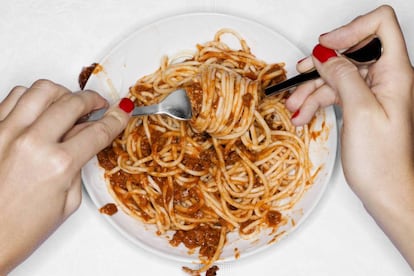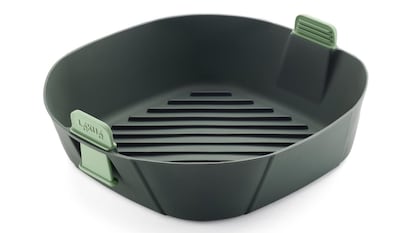Is your diet weakening your bones?
To reduce the risk of osteoporosis, you should avoid eating and drinking these seven things

Many people suffer from osteoporosis but few of us know it. According to the National Osteoporosis Foundation, approximately 10 million Americans have osteoporosis and another 44 million have low bone density, which places them at risk.
For the most part, this disease is asymptomatic until there are clear warning signs. These signs usually do not appear until the disease is well under way. The best time to catch and treat osteoporosis is before you develop any signs or symptoms. Knowing and understanding the risk factors for this disease is important as it can help you make lifestyle changes before the condition has set in.
How nutrition affects bone health
Nutrition has a major influence on osteoporosis. Most of us are aware that eating foods rich in bone-building calcium and vitamin D (like dairy products, fish, and calcium-fortified foods) can help protect your bones. But it is just as important to avoid the foods and beverages that threaten bone health. Certain foods can inhibit your body from absorbing calcium. This reduces bone mineral density and ultimately leads to porous, weak bones.
Here are seven foods that can threaten the health of your bones.
1. High-sodium foods
Approximately 10 million Americans have osteoporosis
Consuming a steady diet of over-salted, high-sodium foods may taste good but the extra sodium does not do your bones any favors. Sodium actually makes your body lose essential calcium. Excess salt in your system has to be excreted through your urine and some of your body’s stored calcium is pushed out with it. About 75% of our sodium intake comes from processed and packaged foods, such as cured meats, snack foods and canned foods. To improve your bone health it is important to choose more fresh fruits and vegetables, fresh meats (avoid bologna, hot dogs, sausage, bacon, etc.), unsalted nuts and seeds and aim for no more than 2,300 milligrams of sodium a day.
2. High-oxalate foods
Oxalate is an organic compound found naturally in many foods. Once consumed, oxalate can bind to the calcium which is then excreted from the body – preventing the calcium from being absorbed. Foods that contain high oxalate levels include spinach, rhubarb, beet greens, some beans and soy products such as edamame, tempeh, and tofu. However, these foods have valuable health-promoting nutrients. Does this mean we should avoid them? Thankfully, the answer is no. Studies have found that if you eat the recommended daily amount of calcium, this effect isn’t seen. The take-home message is that the calcium to oxalate ratio is more important than high levels of oxalate. Keep eating calcium and you have nothing to worry about.
3. Caffeine
An eight-ounce cup of coffee contains about 95 milligrams of caffeine. While many of us enjoy having at least one cup of coffee a day, caffeine can reduce your body’s ability to absorb calcium from the foods you eat. But here’s the good news: If you’re consuming the Recommended Daily Allowance (RDA) for calcium (1,200 milligrams for women aged between 51 and 70, and 1,000 milligrams for men in the same age bracket), your body can counteract this process. Research has shown that caffeine intake does not harm your bone health as long as you are consistently meeting the RDA for calcium.
4. High-protein foods
Sodium actually makes your body lose essential calcium
Protein is another substance that can bind with calcium which causes it to be excreted out of your body with urine. Whether you consume too much or too little, there is a risk that protein will harm your bone health. Your best bet is to eat sufficient protein without going overboard or consuming too little. The recommendation from the Dietary Reference Intakes is 0.8 grams per kilogram of body weight for both adult men and women (convert your weight in pounds to kilograms by dividing it by 2.2). Be sure to include high-quality protein food sources such as fish, poultry, lean beef, eggs, and dairy products.
5. Foods containing phytates
A compound called phytates, if consumed in large quantities, may harm bone health. Phytates are antioxidant compounds found in whole grains, legumes, nuts, and seeds. The main concern is that phytates can bind to certain minerals, like calcium, which interferes and slows down your body’s ability to absorb them. But this only applies to a single meal, not overall nutrient absorption throughout the day. For example, snacking on nuts between meals could reduce the amount of calcium from these nuts, but not from the meal you eat a few hours later.
6. Sugary sodas
Besides containing too much sugar for our own good, sodas, particularly dark-colored sodas, appear to negatively impact calcium absorption. The reason is due to an ingredient cola beverages contain called phosphoric acid. Phosphoric acid in dark-colored sodas has been shown to cause your body to excrete calcium as opposed to light-colored sodas. In addition, most cola beverages contain caffeine, which may also impact calcium absorption. Research has linked people who have high soda intake with the risk of fracture, which could be partly due to phosphoric acid but also because soda drinkers are not likely to be consuming calcium-rich milk or other foods containing the bone-building mineral.
7. Alcohol
While there is some evidence moderate drinking may have a positive effect on bone health, it is well-documented that chronic, heavy alcohol use can dramatically affect bone health and increase the risk of osteoporosis. Moderate drinking is defined as no more than one drink per day for women or two drinks per day for men.
Dr. Samadi is a board-certified urologic oncologist trained in open and traditional and laparoscopic surgery and is an expert in robotic prostate surgery at Lenox Hill Hospital. He is a medical correspondent for the Fox News Channel's Medical A-Team Learn more at roboticoncology.com. Visit Dr. Samadi's blog at SamadiMD.com. Follow Dr. Samadi on Twitter, Instagram, Pinterest and Facebook.
Tu suscripción se está usando en otro dispositivo
¿Quieres añadir otro usuario a tu suscripción?
Si continúas leyendo en este dispositivo, no se podrá leer en el otro.
FlechaTu suscripción se está usando en otro dispositivo y solo puedes acceder a EL PAÍS desde un dispositivo a la vez.
Si quieres compartir tu cuenta, cambia tu suscripción a la modalidad Premium, así podrás añadir otro usuario. Cada uno accederá con su propia cuenta de email, lo que os permitirá personalizar vuestra experiencia en EL PAÍS.
¿Tienes una suscripción de empresa? Accede aquí para contratar más cuentas.
En el caso de no saber quién está usando tu cuenta, te recomendamos cambiar tu contraseña aquí.
Si decides continuar compartiendo tu cuenta, este mensaje se mostrará en tu dispositivo y en el de la otra persona que está usando tu cuenta de forma indefinida, afectando a tu experiencia de lectura. Puedes consultar aquí los términos y condiciones de la suscripción digital.




























































